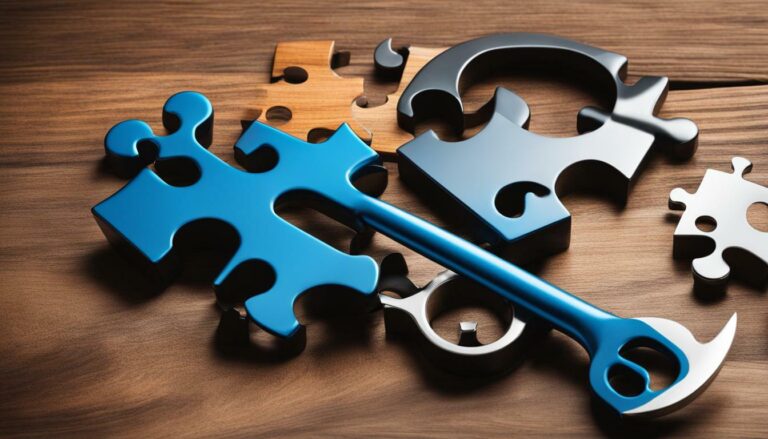Effective Credit Repair for Non-Traditional Borrowers Guide

If you are a non-traditional borrower in the US seeking to regain financial control, our guide on effective credit repair is here to help. Improving your credit scores and qualifying for a conventional mortgage loan might seem daunting, but with the right strategies, it is achievable. Understanding the factors that affect your credit scores, building credit through smart financial choices, and seeking professional guidance are key steps towards credit repair success.
- Improving credit scores is crucial for non-traditional borrowers looking to qualify for a conventional mortgage loan.
- Factors that affect credit scores include payment history, credit utilization, credit history length, credit mix, and new credit applications.
- Building credit can be done through installment loans, timely payments, and considering non-traditional loans.
- Paying off past-due accounts and reducing credit utilization are effective ways to improve credit scores.
- Seeking professional guidance from credit repair experts can provide personalized support throughout the credit repair journey.
Understanding Credit Scores and Mortgage Approval
To improve credit scores and increase chances of mortgage approval, it is crucial for non-traditional borrowers to understand the factors that influence credit scores. Payment history, credit utilization, credit history length, credit mix, and new credit applications all play a significant role in determining creditworthiness. By focusing on these factors, non-traditional borrowers can take strategic steps towards improving their credit scores.
Payment history is one of the most important factors lenders consider when assessing creditworthiness. It is vital to make all payments on time and in full, as late or missed payments can have a negative impact on credit scores. Setting up automatic payments or reminders can help ensure timely payments and avoid any negative repercussions.
Credit utilization is another crucial factor that affects credit scores. It refers to the percentage of available credit that is being utilized. Keeping credit utilization below 30% is generally recommended for optimal credit health. Paying down credit card balances and avoiding maxing out credit limits can help improve credit scores.
Credit history length also plays a role in credit scores. The longer the credit history, the more data lenders have to assess an individual’s creditworthiness. Non-traditional borrowers can focus on building a positive credit history by maintaining long-standing accounts, even if it means keeping them open and in good standing.
🚨 TUIC Errors + Low Credit Score?
CreditScoreIQ helps you build credit faster by reporting utility bills to all 3 bureaus—while you dispute errors.
Start Building Credit Today →
It’s important to note that the image above represents the journey of credit repair for non-traditional borrowers.
Lastly, non-traditional borrowers can consider diversifying their credit mix and limiting new credit applications. Having a mix of different types of credit, such as credit cards, installment loans, and mortgages, can demonstrate responsible financial management. Limiting new credit applications helps prevent multiple hard inquiries, which can temporarily lower credit scores.
Summary:
To improve credit scores and increase the chances of mortgage approval, non-traditional borrowers should focus on factors such as payment history, credit utilization, credit history length, credit mix, and new credit applications. By making timely payments, keeping credit utilization low, maintaining a long credit history, and limiting new credit applications, non-traditional borrowers can work towards improving their credit scores and qualifying for a conventional mortgage loan.
Building Credit for Non-Traditional Borrowers
Building credit is essential for non-traditional borrowers looking to qualify for a conventional mortgage loan, and this section provides actionable steps to achieve that goal. By taking strategic measures, non-traditional borrowers can establish a positive credit history and improve their credit scores.
One effective strategy is to consider installment loans, such as non-traditional mortgage loans, as a way to build credit. By making timely payments on these loans, borrowers demonstrate their financial responsibility and improve their creditworthiness. Additionally, exploring non-traditional loans like B/C Loans can be beneficial for establishing credit history and boosting credit scores.
Paying off past-due accounts is another crucial step towards credit repair. By resolving outstanding debts, non-traditional borrowers can eliminate negative markers on their credit reports and show potential lenders their commitment to financial responsibility. Reducing credit utilization, which refers to the percentage of available credit being used, is also an effective tactic to improve credit scores. By keeping credit utilization low, borrowers demonstrate that they can manage their credit responsibly.
| Steps to Build Credit for Non-Traditional Borrowers |
|---|
| Consider installment loans like non-traditional mortgage loans or B/C Loans to establish credit history. |
| Make timely payments on installment loans to demonstrate financial responsibility. |
| Pay off past-due accounts to eliminate negative marks on credit reports. |
| Reduce credit utilization by keeping credit balances low. |
In summary, building credit for non-traditional borrowers is a crucial step towards qualifying for a conventional mortgage loan. By following these actionable steps and making responsible financial choices, non-traditional borrowers can improve their creditworthiness and increase their chances of obtaining a mortgage.

“Building credit is not an overnight process, but with determination and smart financial choices, non-traditional borrowers can position themselves for a brighter financial future.”
Seeking Professional Guidance for Credit Repair
While navigating the credit repair process may seem challenging, seeking professional guidance from credit repair companies and experts can make a significant difference. These professionals specialize in assisting non-traditional borrowers and have the knowledge and experience to guide you towards improving your credit scores and qualifying for a conventional mortgage loan.
Working with credit repair companies offers several benefits. They can provide personalized guidance tailored to your unique financial situation, helping you develop a strategy to repair your credit effectively. These experts understand the intricacies of credit scoring and can identify areas where improvements can be made. Through their knowledge and expertise, they can assist you in resolving credit issues, disputing inaccurate information, and negotiating with creditors.
One of the advantages of credit repair companies is that they can save you time and effort. Repairing credit can be a complex and time-consuming process, requiring careful monitoring of credit reports and communication with creditors. By outsourcing this task to professionals, you can free up your time and energy for other important aspects of your financial journey.
When seeking professional guidance for credit repair, it is essential to choose reputable credit repair companies that are transparent about their services, fees, and timeline. Take the time to research and compare different companies, read reviews, and understand the services they offer. Look for companies that have a proven track record of success and a strong reputation in the industry.

| Benefits of Seeking Professional Guidance for Credit Repair |
|---|
| Personalized guidance tailored to your unique financial situation |
| Expertise in credit scoring and identifying areas for improvement |
| Assistance with resolving credit issues and disputing inaccurate information |
| Negotiation with creditors on your behalf |
| Time-saving and efficient credit repair process |
Conclusion
Repairing credit for non-traditional borrowers is a crucial step towards achieving financial goals and qualifying for a conventional mortgage loan. While it may seem overwhelming, seeking professional guidance from credit repair companies and experts can provide the necessary support and expertise to navigate the credit repair process successfully. By choosing reputable professionals, you can improve your credit scores, resolve credit issues, and work towards a brighter financial future.
Conclusion
In conclusion, credit repair is a crucial step for non-traditional borrowers seeking to regain financial control and qualify for a conventional mortgage loan. Start your credit repair journey now and pave the way for a brighter financial future.
To improve credit scores and qualify for a conventional mortgage loan, non-traditional borrowers can take several steps. Credit score is a major factor in mortgage approval, so it’s essential to focus on improving it. Factors that affect credit scores include payment history, credit utilization, credit history length, credit mix, and new credit applications.
Building credit can be done through taking out installment loans, such as non-traditional mortgage loans, and making timely payments. Non-traditional borrowers who don’t currently qualify for a conventional mortgage loan can consider non-traditional loans like B/C Loans to build credit history. Additionally, paying off past-due accounts and reducing credit utilization can improve credit scores. Consulting with a mortgage professional can provide guidance in taking the right steps towards qualifying for a conventional mortgage loan.
FAQ
Q: What factors affect credit scores?
A: Factors that affect credit scores include payment history, credit utilization, credit history length, credit mix, and new credit applications.
Q: How can non-traditional borrowers build credit?
A: Non-traditional borrowers can build credit by taking out installment loans, such as non-traditional mortgage loans, and making timely payments. They can also consider non-traditional loans like B/C Loans to establish credit history.
Q: How can credit scores be improved?
A: Credit scores can be improved by paying off past-due accounts and reducing credit utilization.
Q: Should non-traditional borrowers seek professional guidance for credit repair?
A: Yes, seeking professional guidance is important when navigating the credit repair process. Credit repair companies and professionals can provide personalized assistance and support.
Q: What is the importance of credit repair for non-traditional borrowers?
A: Credit repair is crucial for non-traditional borrowers looking to qualify for a conventional mortgage loan. It helps improve credit scores and increases the chances of mortgage approval.
Q: How can non-traditional borrowers start their credit repair journey?
A: Non-traditional borrowers can start their credit repair journey by following the steps and strategies mentioned in this guide. It is essential to take proactive measures to regain financial control and qualify for a conventional mortgage loan.
Ready to Improve Your Credit?
Disputing TUIC errors is step one. Step two? Boost your score by reporting utility payments with CreditScoreIQ.
Get Started Now (Only $1 Trial) →3-bureau reporting • $1M identity insurance • Dark web monitoring




